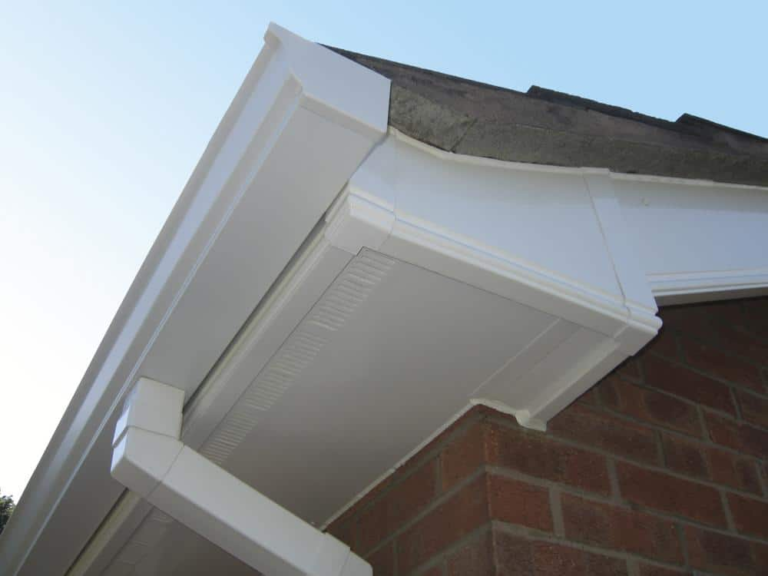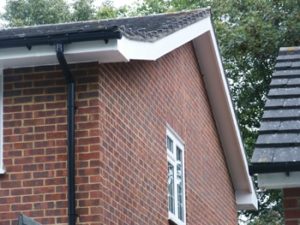You'll Never Guess This Fascia Board Repair Near Me's Tricks
페이지 정보

본문
 Soffit and upvc fascia and soffit installers near me Repair Near Me
Soffit and upvc fascia and soffit installers near me Repair Near MeRoofers, gutter experts, and general contractors are all professionals who can fix soffit or fascia replacement specialists. It is important to vet these professionals prior to selecting one to finish your project.
Neglected soffit and fascia can create cracks or openings that provide entrance points for pests like rodents and insects. These unwanted guests could cause damage to your home as well as create health hazards.
Identifying the Issue
The fascia is a long piece wood that covers the rafters, blocks off the attic space and holds gutters in place. It protects the roof and home from pests and water damage. The damage to the fascia could cause costly problems such as roof leaks and decay. It is crucial to get the damaged areas repaired by a professional as quickly as you can. A roofing contractor or a carpenter with experience with both gutters and fascia is the most recommended choice to contact.
The first step a professional takes to determine the issue is to inspect the area. They will look for indications of rot, such as soft spots or hollow sounds. They'll also check the condition of the gutters to ensure they're still secure. If the gutters are loose, the fascia might also be loose and requires to be replaced.
Another indication that it's time to fix the fascia is when it begins to lose its grip or begin to pull away from the house. This could be due to heavy winds or improper installation.
In addition to identifying the issue, a professional will help homeowners understand what factors will affect the price of the project. For example, the location of the house will play a role in the cost, as will the weather conditions at the time of the project. The kind of material used to construct the new fascia will also have a big impact on the cost. Spruce, pine, and fir are the most cost-effective options however they are less durable and more susceptible to water damage. Cedar, cypress and redwood provide an alternative because they are more durable and harder.
A professional will also need to get a permit before they can start the work. This is especially true when you have to take down existing fascia boards. This is usually not difficult and can be completed relatively quickly. The exact requirements will vary based on the jurisdiction. You should contact your local government to determine if the permit is required for your project.
Take off the old fascia
The fascia boards of your home are subject to a lot of abuse from the elements, and they can only hold up so long. It's just one of the parts of your home that may be damaged by rain, wind and other forces of nature, so it is important to regularly check it for indications of rot or damage. If you find any of these issues, it's a good idea for you to seek out a professional who can help with repairs or replacements.
It is important to know that the cost of replacing your fascia board can vary in relation to the size and the material. Wood is cheaper than aluminum, while composite materials are durable and have resistance to decay. Before purchasing a product it's a good idea to talk to a contractor about the pros and cons of each kind of fascia board.
If your fascia boards have started to rot and you're looking to get rid of them before installing new ones. With a pry bar, carefully remove the old Fascia board repair near Me boards away in short sections, but be cautious not to damage roof gutters or shingles. It is a good idea to wear safety glasses and a mask to protect yourself from splinters during the removal of the old fascia.
After the old boards are removed, it is necessary to examine the sub-fascia underneath and rafters for damage. It's not unusual for a board that is rotting to spread and cause damage to the framing beneath. Once the underlying components are exposed, you'll be able to easily spot the areas that need to be replaced.
Also, you should examine the area for evidence of an insect or animal infestation. Since the fascia and repairing soffit and fascia boards are the ideal place for birds, rodents, and insects to build their home, it's vital to be on the lookout for oddly shaped or drilled holes. These creatures aren't just a nuisance, but they can also allow water to enter the attic and cause further problems. Keep the area around your home clean and free of food waste, pet food, and trash to prevent insects from destroying your fascia. Also, be sure to install downspouts that are properly placed to divert water away from the home and fascia boards.
Cut off the old fascia
If the fascia soffit and guttering replacement near me boards aren't replaced, water could seep into the attic and cause damage to the roof shingles and home interior. To prevent this, new fascia boards should be installed as soon as you notice signs of rot or damage.
Depending on the severity of the damage, you might be able repair the rotten fascia by using wood filler or epoxy. If the fascia board has completely degraded or has begun to deteriorate because of exposure to a lot of the elements, it's best to replace it.
The kind of material you choose depends on your personal style and requirements. Composite materials are low-maintenance, and resistant to decay, while wood offers a natural appearance. Aluminum and vinyl are sought-after because they are strong and cost-effective.
Once you have chosen the material you'll need, it's time to begin the process of installing it. Begin by measuring the new fascia and cutting it to the proper length using a circular saw. If necessary, you can match the pieces to give a seamless appearance. If the new fascia is not pre-primed with primer, apply a coat of exterior primer to shield it from water damage.
It's important to make sure that the new fascia is fitted properly after it's been cut. Make sure to securely join the ends together and seal any gaps using exterior-grade caulk.
If you are unsure of how to proceed you might want to hire a professional Palm Harbor fascia contractor. They'll have the tools and expertise to swiftly and easily install your new fascia.
After the new fascia has been installed, it is time to reconnect your gutter system. Check for any signs that moisture might be present. Damage from moisture can be a major issue particularly in Florida, where it's humid and hot. The moisture can enter the rotting fascia, and then detach the gutter system leaving it loose and vulnerable to further damage.
A peeling or cracked finish is another sign of damage caused by moisture. Continuous exposure to cold, heat, and UV rays can cause paint finishes to degrade and bubble, which exposes the wood beneath. The exposed wood will then absorb snow and rain which can cause fungal growth, which results in the fascia to rot and decreases the fascia's appearance.
 Installing the New Fascia
Installing the New FasciaA new fascia board will give your home a fresh look and prolong the life of your roof. The most important consideration is to choose a material that is not prone to water damage and easy to maintain. There are many different options, including wood, vinyl and aluminum. Each has its own pros and cons, but all do an excellent job.
It is always recommended to hire an experienced and licensed roofing contractor, regardless of the material you choose. This is due to the fact that working with power tools on a ladder poses certain risks and requires special safety equipment. It is also easier to avoid costly mistakes and make sure that the project will be done correctly.
Once you've got the supplies you require and are ready to begin installing the new fascia board. First, you must measure the length of each piece, then cut them to the required size with a circular saw. Be sure to wear safety glasses and gloves when doing this. Once the pieces are cut, they must be painted or primed to protect them from moisture damage.
Once the boards are set to be installed to be installed, align them with the ends of rafters. Then, begin nailing them in the desired position. It is a good idea to drive in nails every couple of feet to hold the boards in place and stop them from becoming loose over time. Contact your roofing contractor for assistance if you're not sure how to nail.
Examine the rafters, sub-fascia and boards for indications of rot or damage. This is the ideal time to fix these issues before they get worse. This will help prevent damage from moisture and will reduce the need for future repairs.
A damaged fascia board can cause water infiltration and damage to your roof's soffits, trusses, and ceilings. Call for help if you see water accumulating on your fascia board or rot in your attic. Professionals can replace your fascia boards to avoid further damage and moisture infiltration.
- 이전글How A Weekly Private ADHD Assessments Project Can Change Your Life 25.01.09
- 다음글Top Weight Management Supplements to Help in Your Body Transformation 25.01.09
댓글목록
등록된 댓글이 없습니다.



